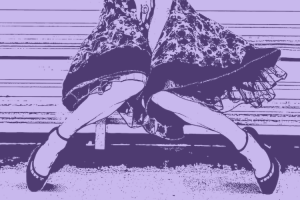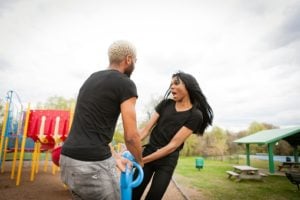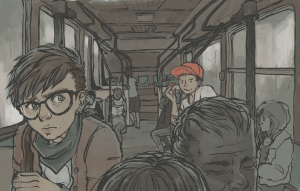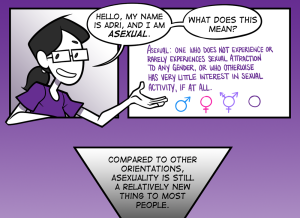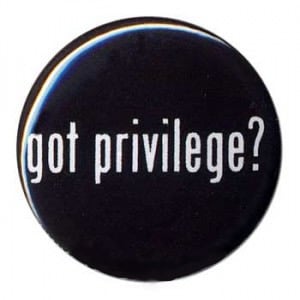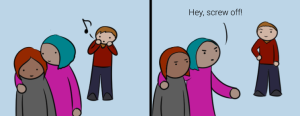
Credit: MOCSA
No one wants to think about the sexual abuse of children. There are barely words for what an awful and horrific crime sexual assault is.
And when it is committed against a child, especially to our own child, it leaves us even more speechless and horrified.
But the sexual abuse of children is a devastating reality that too many children face, and we help no one when we avoid it.
Sexual abuse of children happens at alarming rates, and we must be educated in order to be prepared to help the survivors – your kids, your nieces and nephews, your friends’ kids.
Here are some frightening facts:
- 1 in 4 girls will be sexually assaulted before she turns 18
- 1 in 6 boys will be sexually assaulted before he turns 18
- As many as 90% of child survivors knew the perpetrator
- Only 1 in 10 child survivors will tell anyone
Let’s Understand Sexual Abuse Against Children
1. What is child sexual abuse?
It could be touching or non-touching abuse.
Touching abuse includes:
- Penetration of a child with an object or body part
- Fondling or inappropriate touching of a child’s body
- Forcing (or “requesting”) a child to touch an adult’s sexual organs or in sexually explicit ways
Non-touching abuse includes:
- Sharing pornographic materials to a child
- Indecent exposure or exhibitionism
- Masturbating in front of a child
- Deliberately engaging in sexual intercourse in front of a child
- Using a child to model, promote, or film pornography
- Otherwise sexually exploiting a child
2. What can we do to help our kids understand that it’s wrong?
Everyday Feminism has some great articles on this subject. For more detailed and in depth information, check them out! In the meantime, here are some highlights:
- Talk to your child about sexual abuse and help them develop healthy sexuality: Developing a healthy understanding of sexuality is critically important to a child’s personal and social growth. It will help your child to understand that bodies and touch are not shameful, but that certain types of touch from certain people might feel wrong.
- Teach your child anatomically correct language for their genitalia: Think about it: if you teach your daughter that her vagina is called a “cookie” and she tells you that her teacher touched her cookie, you may not notice or think twice. If she tells you that her teacher touched her vagina, there is no ambiguity. You will notice when you hear those words.
- Develop safe boundaries: If you ask for a hug but your child says no, respect that. Do not force a child to hug or kiss anyone if s/he has refused. It’s so common for adults tell young children to “give Uncle Freddy a kiss or he will be sad!” – but think of how harmful that is. What if Uncle Freddy is actually a perpetrator, and your child now thinks that s/he has to accept physical contact that feels uncomfortable? It’s cute when babies give kisses – everyone loves it! – but if you ask a young child (or anyone, for that matter) for a kiss and s/he says no, we have a responsibility to respect that.
3. How do we know if it’s happening to the kids in our lives?
Know the signs. Depending on the age, a child likely does not yet have the language or vocabulary to disclose abuse. Children act out in other ways to express their feelings about what’s happening to them.
If your child begins acting unusually or in any of the ways listed below, and if there is no medical explanation, it may be appropriate to be extra vigilant regarding their safety.
Children up to age 3 may exhibit:
- Sleep disturbances
- Failure to thrive
- Bowel problems
- Fear
- Excessive crying
- Vomiting
Children from 3 to 9 can show:
- Fear of particular people or places
- Regression of earlier behaviors like bed wetting or drinking from a bottle
- Eating disturbances
- Nightmares
- Sexual behavior or knowledge that is age inappropriate
- Withdrawal from family and friends
- Unexplained aggression or “anger issues”
Older children and adolescents can express or have:
- Depression
- Risky sexual behavior
- Poor school performance
- Eating disturbances or eating disorders
- Running away from home
- Unexplained aggression
- Poor emotional regulation
- Poor social skills
What To Do If It Happens To A Child Who You Love
1. Stay Calm If They Tell You
If a child tells you that they have been sexually abused, it is super important to remain calm and focus on supporting the child.
It’s perfectly understandable that when you hear someone has hurt your child, you get upset and angry.
The problem is that when adults react with anger or extreme emotion, a child may blame themselves, feel guilty for upsetting a loved one, and/or believe they will be punished.
This can cause the child to shut down, change or deny the story, or feel even less safe.
Staying calm in this situation is almost impossible. It will be absolutely necessary to find safe and appropriate ways to deal with your reaction. Bottling up your feelings will not be helpful, either.
But it is most important that you help a child survivor by making them feel safe. A child won’t feel safe if you are screaming and crying.
Instead, find a trusted friend or partner and scream and cry with them. Find a therapist, a member of your religious community, a guidance counselor at your child’s school – any trusted and skilled listener – and let yourself experience your emotions with them.
2. Believe Reports of Child Abuse
It is essential to believe a child who says that they have been violated. According to the FBI, only 2% of all reported sexual assaults are false accusations, which is not higher than for other crimes.
So very few reports are false or fabricated. Just as we need to believe adult survivors, we must believe child survivors because our society and rape culture has made it very difficult for survivors to come forward out of fear of backlash.
With children, they have often been intimidated, threatened, bribed, manipulated, and otherwise coerced by their abuser to stay quiet and made to feel what has happened was shameful and their fault.
This makes it much more difficult to share what happened, if they even have the language to describe it effectively, with a safe adult out of fear of getting into trouble and being punished for it.
It is also important to hear other adults who have concern for your child’s safety.
If a teacher or nanny tells you that your child has disclosed abuse or otherwise caused reason for concern, it is easy to dismiss it immediately or to react in anger towards another adult for suggesting something so awful.
But this could cause fear in your child or communicate that it is bad to talk about sexual abuse.
The best response, regardless of who discloses sexual violence, is to remain calm, open minded, and to communicate that this is wrong, it’s not their fault, and it needs to be stopped.
3. Understand the Law and Legal Process
Because each state has its own laws and policies regarding children and sexual violence, you will need to do your own research regarding how to handle the sexual abuse of a child.
Generally, it is a good idea to start by calling your local police station and child protective services. They will be best able to inform you of your state’s policy and requirements regarding the report of child abuse and sexual violence.
Here are other tools that may be useful:
- Child Welfare Information Getaway
- The National Center for Victims of Violent Crime can help with reporting abuse or obtaining legal aid if your local law enforcement or protective services has not been helpful
- Rape Abuse and Incest National Network can connect you with your local rape crisis center and has other important resources for family members and survivors
4. Talk To a Skilled Listener
It will be important for a child to feel heard, respected, and supported after experiencing sexual abuse. Parents, friends, and loved ones are a great source of that support, but children will benefit from more.
Supporting a child who’s been abused can be emotionally challenging and draining for parents and loved ones of the survivor. While you may feel uncomfortable getting help for yourself, it’s important to acknowledge that you may need support yourself during this healing process.
Reaching out to your local rape crisis center and seeking therapy can help. But make sure that the therapist has experience in supporting survivors of child sexual abuse.
And remember, self care for yourself and for your child will be essential in the healing process.
5. Continue Talking To Your Children About Child Sexual Abuse
It is a difficult and uncomfortable topic, but one that is important for families to discuss openly.
Talking about it openly, frequently, and casually creates a supportive environment for a child to feel comfortable telling you if they were violated and to know that they can say “no” to an adult who wants to do sexual activities with them.
To help you navigate this difficult topic, check out these excellent articles with practical tips for talking with children and teenagers about sexual abuse.
The sexual abuse of children is a heartbreaking reality that we must confront with information and sensitivity.
Although we are not responsible for a perpetrator’s violence, we are responsible for our reactions to it.
We must reject the shame and blame that often exists around sexual violence. We must be sensitive and supportive of survivors in their healing process.
Sarah Ogden is a Contributing Writer for Everyday Feminism. She is a graduate student in Social Work at the University of Pennsylvania, where she is focusing on clinical work with survivors of trauma, works at a domestic violence agency as a therapist intern, and volunteers as an abortion and pregnancy loss doula. Previously, she’s worked for a suicide and rape crisis hotline and as an emergency room advocate for survivors of sexual assault. Follow her on Twitter @xsogden.
Search our 3000+ articles!
Read our articles about:
Our online racial justice training
Used by hundreds of universities, non-profits, and businesses.
Click to learn more





